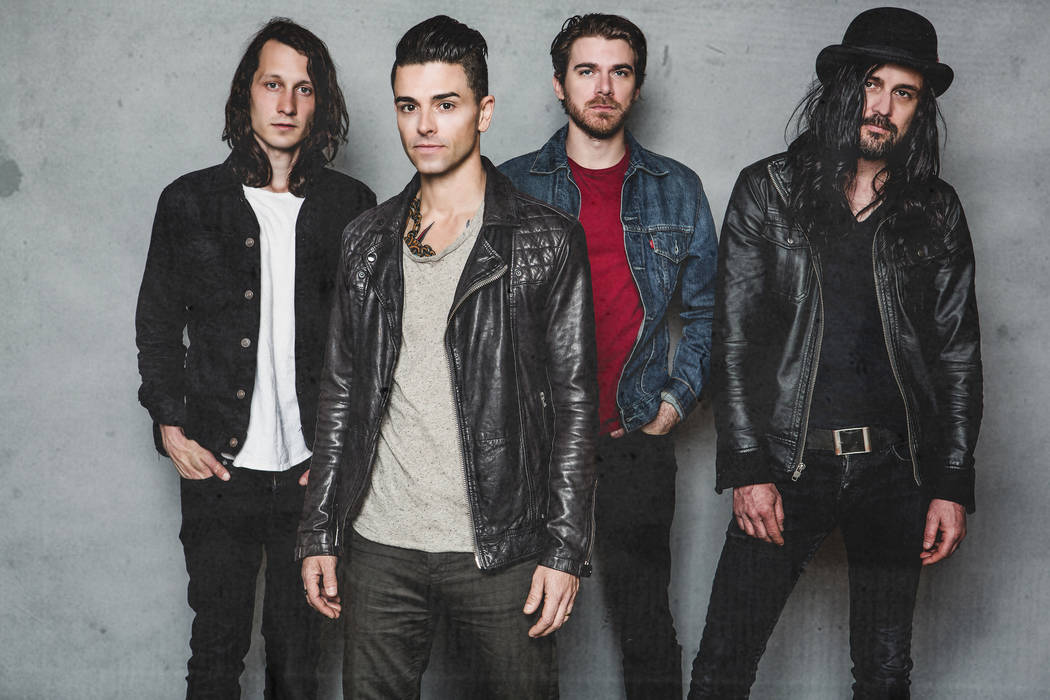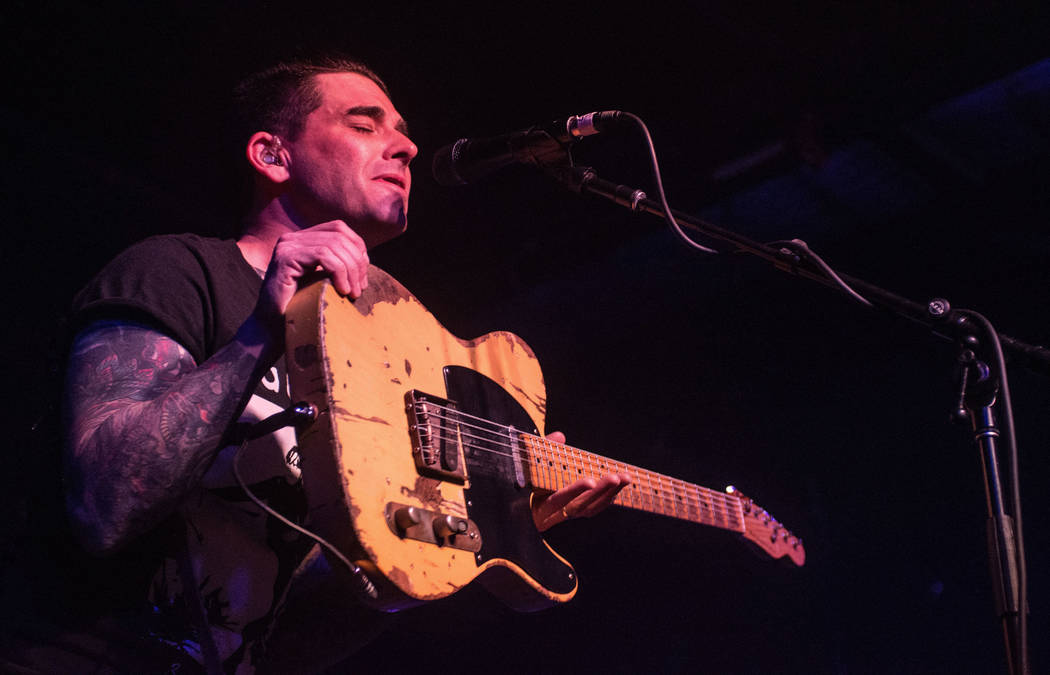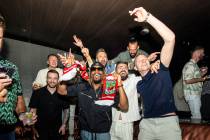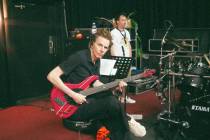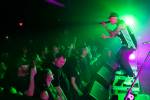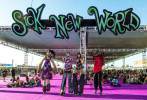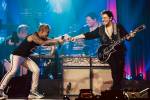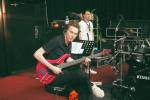Dashboard Confessional frontman remains a proud emo icon
He impaled a generation of hearts with his pen.
It all began in earnest with a breakup song inhabited by a former flame who’s reduced a relationship to ash.
You could hate the way Chris Carrabba sings it, his voice as tender as his deeply bruised ego.
You could hate its acoustic lilt, its straightforwardness, its thorough lack of adornment, musical or otherwise.
But you can’t leave “Screaming Infidelities” without feeling something.
It’s uncomfortably candid, painfully detailed, as if you’ve surreptitiously picked the lock on Carrabba’s diary — not that you’d need to, really, as his lyrics often feel transcribed from the thing.
“I like specificity when it comes to songwriting,” explains Carrabba, frontman for the emotionally effusive Dashboard Confessional. “I think that serves the writer well.”
It clearly has in Carrabba’s case.
Take “Infidelities.”
It was the first single and defining song from Dashboard Confessional’s 2001 breakout disc, “The Places You’ve Come to Fear Most,” the band’s second record, which Rolling Stone has since counted among the 40 greatest emo albums of all time.
Nowadays, acoustic-based singer-songwriters with punk rock backgrounds have become increasingly commonplace thanks to artists like Cory Branan, Frank Turner, Austin Lucas and plenty more.
But in the early aughts, Carrabba didn’t have many peers when he launched Dashboard Confessional as a solo side project from his band at the time, earnest indie rockers Further Seems Forever.
“I was free to do this because I had no expectation that anyone would hear it,” Carrabba says. “I had no record deal, no money, really, to put out my own record, and I was already in another band. This was just a muse to chase. Imagine if I, at that time, had gone out and tried to pitch myself: ‘Hey, I’ve got this great idea. I’m just this punk rock kid who only knows the punk and hardcore world, and I’m just going to play in front of those people with an acoustic guitar. Would you like to sign my project?’ I’d have been lucky to have gotten a pat on the back on the way out.”
Unlikely as it might have seemed at the time, though, Carrabba would be embraced — eventually.
Finding an audience for Dashboard was similar to finding his voice within this context: a process.
“The songwriting for Dashboard was not instantaneous,” Carrabba says. “I had to come to it because I wrote more metaphorically, but I think that you bury the lede by dancing around it with this colorful language. And so it was more of a project: Let me challenge myself to see what happens if I take that safety net away, the safety net being, ‘Let me write down every way to say this but the way that I would actually say it.’ ”
It worked: Beginning with “Places,” Dashboard would earn three consecutive gold records and go on to land tours with big names like Weezer, Beck and, yes, Bon Jovi.
Along the way, Carrabba became one of the most prominent faces of the emo boom that infiltrated the mainstream a little over a decade ago. Plenty of artists resist being closely tied to a specific musical movement, especially something like emo. Emo, short for emotive, was first associated with expressive, heart-on-the-sleeve indie rockers like Rites of Spring, Sunny Day Real Estate and Mineral.
By the time acts like Dashboard started to hit, however, it had become a broader umbrella term, encompassing plenty of popular pop punk bands like Fall Out Boy, New Found Glory and Simple Plan. It was often used as a pejorative, a way to ding rock and punk bands who spoke about their feelings openly and expressed a measure of vulnerability, dismissing them as maudlin, overwrought and testosterone deficient.
Carrabba, however, never really seemed to mind being cited as a central figure in the emo scene, nebulous as it was, though he does acknowledge feeling some ambivalence to the term, if only briefly.
“There was a period when I did kind of feel disassociated from it,” he says. “That was when there were several iterations of bands that had been influenced by our scene and had come up with their own version of it. I thought, ‘I guess that’s what emo is now and we’re not that anymore.’ After more time passes, we continued to be called that by our fans — shamelessly. And I thought, ‘Well, who am I to disagree with the people who are finding what they need from my music?’ It seemed like an inappropriate take on the whole scenario. Now, I’ll proudly call us that.”
The thing about emo is that it’s never been the cool kids’ music, which is maybe why it’s been such an easy target for derision.
But then again, that’s a large part of the music’s purpose: to strip any pretense from artist and audience alike.
“For those who don’t think that it was cool or that I wasn’t cool, guess what? Like most singers, probably, when we were young, we weren’t cool,” Carrabba says. “When we started our bands, we weren’t cool. If we weren’t on stage, we may not be ‘cool guys’ in the broader view of things.
“So, it’s OK,” he continues. “We’re not out there posturing. I wish I was cool, but, look, not everyone gets to be Billie Joe Armstrong. It’s just the way it is. But I’m OK being me.”
Contact Jason Bracelin at jbracelin@reviewjournal.com or 702-383-0476. Follow @JasonBracelin on Twitter.



